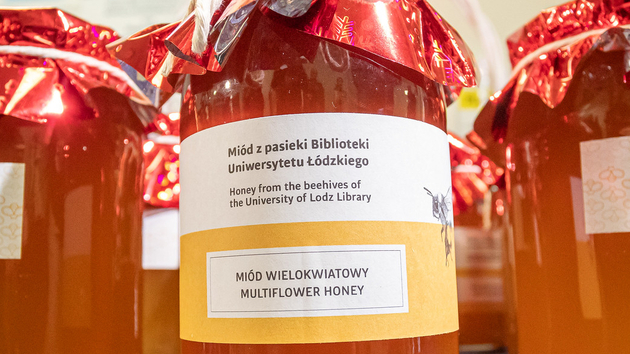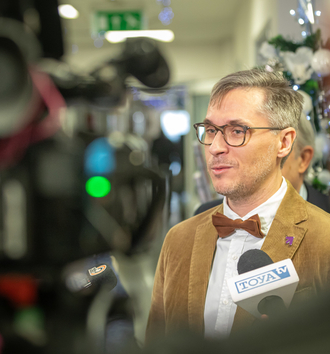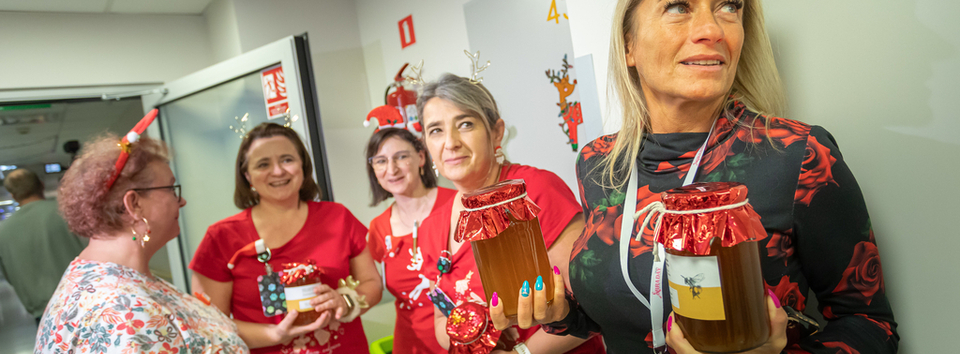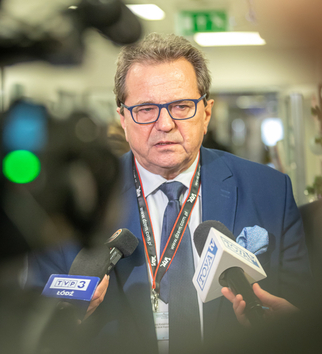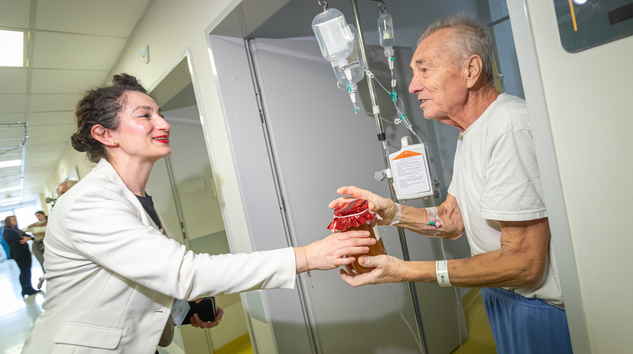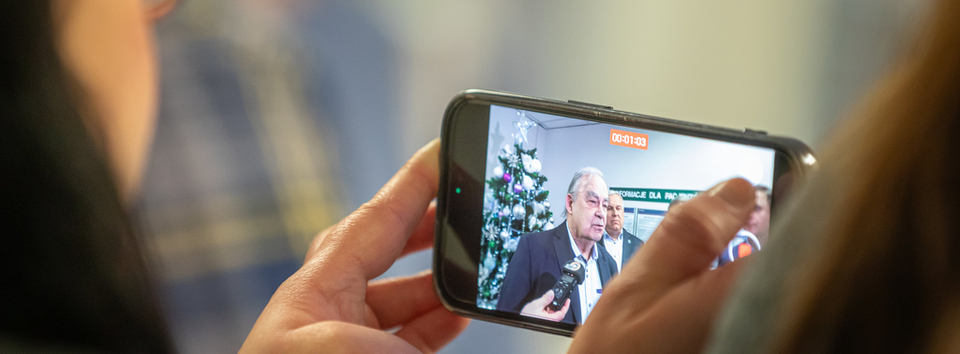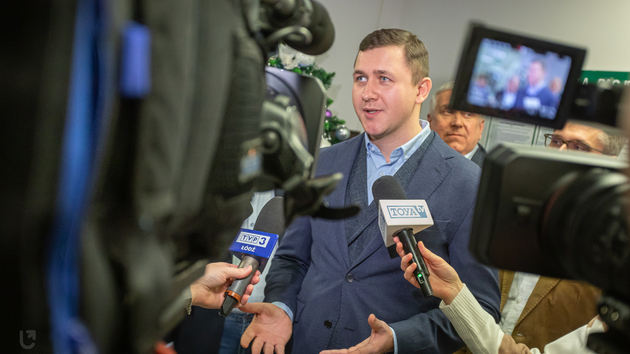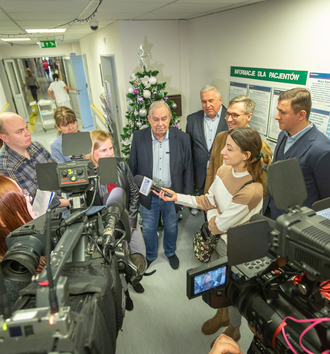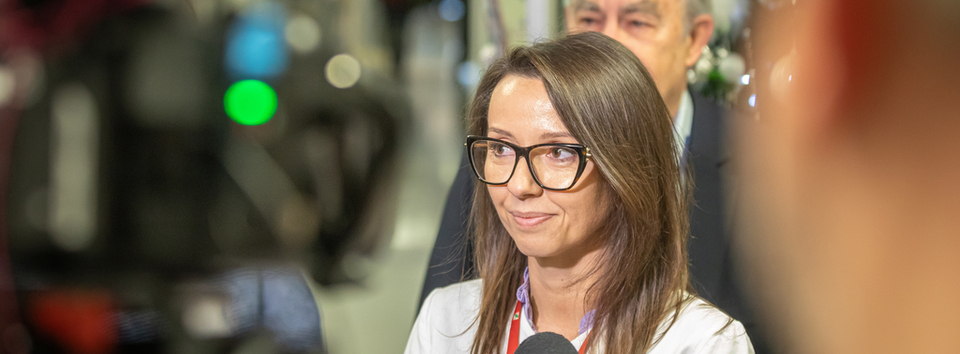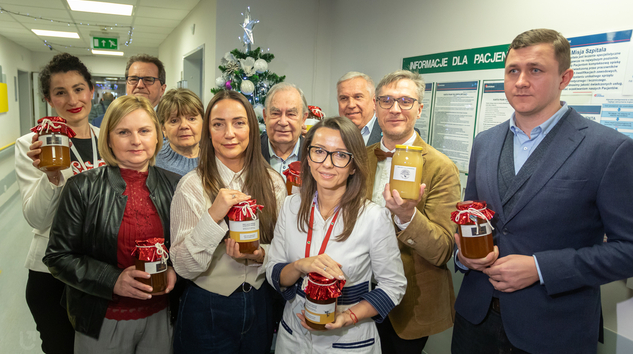Lodz Apiarist Association which the University of Lodz has been cooperating for years, also joined the donation. The ceremonial handover of the gift to the patients took place yesterday, on St. Nicholas Day, in a festively decorated ward of the Copernicus Memorial Hospital in Lodz. It was attended by, among others, Dr Maja Lisik-Habib, Head of the Department of Proliferative Diseases, Andrzej Kasprzyk, Director of the hospital, Dorota Bartnik, Deputy Director of the University of Lodz Library, Dr hab. Mariusz Sokołowicz, Associate Professor at the University of Lodz, Dean of the Faculty of Economics and Sociology of the University of Lodz, Artem Luhovyi, apiary keeper at the faculty and a member of the Lodz Apiarist Association, as well as Andrzej Kołuda, President of the Association.
It is a genuine pleasure for us, as every year, to give this small gift to the patients of a friendly hospital. For several years, our faculty has been running the EkoEksoc project, which shows that many things can be done ecologically: from collecting rainwater, through photovoltaics, to inviting bees to cooperate to produce honey at our faculty. For years, we have also been teaching students that the city is an ecosystem, in which, as it turns out, bees can produce very good and healthy honey
– said dr hab. Mariusz Sokołowicz, Associate Professor at the University of Lodz, Dean of the Faculty of Economics and Sociology.
On the roof top of our library, we have hives where 600,000 ‘busy’ bees are bustling around, producing this wonderful healing substance. There are green areas around the library, so our bees have a lot of flowers and thanks to this the honey they produce is of high quality and has good properties. We are glad that it will serve oncology patients, and thanks to it their rehabilitation will be faster.
– added Dorota Bartnik, Deputy Director of the University of Lodz Library.
Dr Maja Lisik-Habib, Head of the Department of Proliferative Diseases at the Copernicus Memorial Hospital, thanked for the honey, on behalf of the patients:
We are extremely grateful for this gift to the authorities of the University of Lodz, as well as to the entire academic community. You prove that in the fight against cancer, not only the most modern technologies are important, but also human solidarity, the simplicity of ordinary gestures. The honey will reach our patients and their families. I am convinced that in addition to its exceptional taste, it will also be a bit of respite for them during a difficult time of illness.
When asked by journalists about the health properties of honey, Dr Maja Lisik-Habib pointed out that it supports the immune system, strengthens the body's regenerative abilities and aids the healing of wounds to mucous membranes caused during radio- or chemotherapy. It also has an anti-inflammatory effect.
The health benefits of honey consist of 3 things. The first is what the bee brings from the field, i.e. the gifts of nature – pollen from individual flowers. The second pillar each bee adds from itself, from the throat glands, i.e. all enzymatic properties of honey. The third pillar, perhaps the most important, is the products of the breakdown of simple sugars, caused by these enzymes. All of this makes honey first and foremost aseptic, highly nutritious, as well as having a regenerating and regulating effect on our body by replenishing the bacterial flora in the digestive tract and, consequently, improving digestion considerably
– supplemented Andrzej Kołuda, President of the Lodz Apiarist Association.
At the end of the ceremony, Andrzej Kasprzyk, Director of the Copernicus Memorial Hospital, accompanied by nurses and doctors from the Department of Proliferative Diseases, walked through the rooms and personally presented patients with jars of honey from the University of Lodz and the Lodz Apiarist Association.
Source: Communications and PR Centre, University of Lodz
Photos: Maciej Andrzejewski (Communications and PR Centre, University of Lodz)

